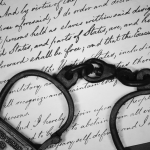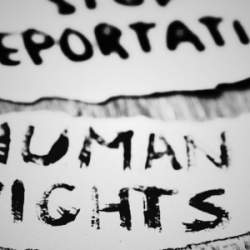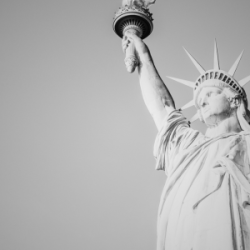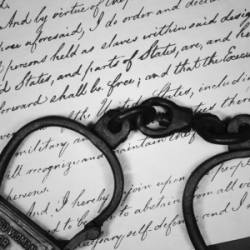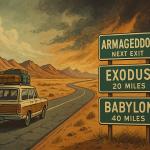
Again, this week’s reading normalizes slavery. One of the dangers of readings like the one we’re reading this week is that they normalize for Christians behaviors and societal evils that we should react to with much more concern. They desensitize us to just how evil some things really are. The scriptures also have a long history of normalizing things such as genocide of Indigenous populations, viewing and relating to women as inferior to men, rejecting and even being violent toward LGBTQ people and migrants; they normalize xenophobia, exceptionalism, White supremacy, nationalism, authoritarianism, militarism, retribution, and more.
Welcome Readers! Please subscribe to Social Jesus Here.
This is Part 3 of The Christian Normalization of Social Evils
(Read this series from its beginning here.)
This has helped me make sense much of why certain sectors of Christians today have embraced racist, fascist, authoritarian, and misogynistic elements in our society. Christians I have known all my life have embraced things over the last decade that have left me wondering if I really ever knew them. Things that should have been deal-breakers were instead glossed over, mitigated, or explained away. This makes sense because if a Christian’s picture of God includes some of these evils and encourages relating to humanity through an aggressive, destructive, us-versus-them paradigm, then these evils become normalized and fail to evoke the repulsion they should. These evils are accepted as part of the moral fiber of a loving God when they should be a huge red flag instead. If these aren’t a deal-breaker for God, they aren’t going to be deal-breakers for political leaders. This has desensitized a whole sector of Christianity to go along with a host of social evils rather than strenuously opposing them as harmful, horrendous, and destructive of vulnerable people. Beyond that, our own bigotries and prejudices can confirm us in normalizing destructive behaviors and worldviews.
However we hold, read, view, or interpret our sacred texts, we must do so in life-giving ways with a diverse community of others who experience life on this planet differently from us. This enables us to experience how others hear certain passages. It enables us become aware of the harm certain interpretations permit certian people to commit. And it offers us the opportunity to humbly listen to those unlike ourselves, believe their lived experience, and choose the kind of human being we want to be.
On the subject of slavery, I’m thankful that certain Bible authors did see the evils of slavery and sought to move their audiences away from it. As much as I critique the gospel of John over its focus on the afterlife rather than this life, it does get some things right. It focuses its audience on love toward one another, and love is the root of justice. It affirms the equality of women and other communities marginalized within Christianity at that time. And it subtly betrays the evil of slavery when John’s Jesus speaks to his disciples:
“I do not call you slaves any longer, because the slave does not know what the master is doing; but I have called you friends . . .” (John 15:15)
It’s still a far cry from a robust rejection of slavery. But the fact that Jesus refused to relate to his disciples as slaves in John, whereas in Luke, he tells disciples to say “We are worthless slaves; we have done only what we ought to have done!”, sows a seed in the hearts of John’s listeners that could germinate and grow into questions about the institution of slavery itself.
Are you receiving all of RHM’s free resources each week?
Begin each day being inspired toward love, compassion, justice and action. Free.
Sign up at HERE.




